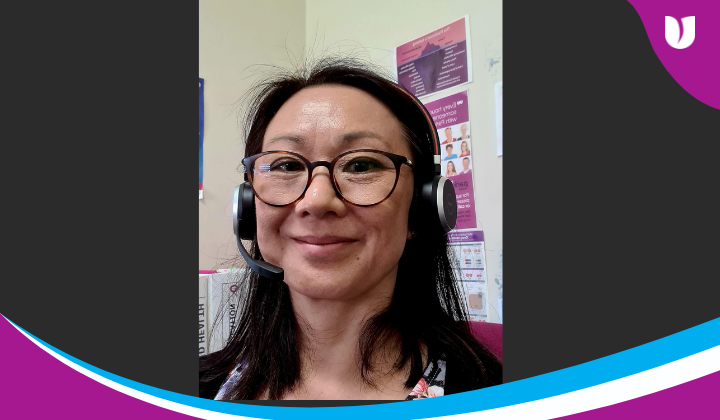Most people living with Parkinson’s see their neurologist every three to six months initially, then every six to 12 months. However, if you are experiencing problems with your Parkinson’s or its treatment, more frequent visits may be required.
A neurologist is a key part of your Parkinson’s health team. A neurologist is a specialised doctor with training in the care of conditions of the brain, spinal cord, nerves, and muscles. A movement disorders specialist is a neurologist, who has additional training or interest in movement disorders such as Parkinson’s disease. Research has shown that having a neurologist or movement disorders specialist on your PD team can improve symptom management and reduce hospitalisations related to your PD.(1,2 ).
Parkinson’s is a complex disease that is difficult to diagnose and challenging to treat.
That is why you need to get the most out of every visit to your neurologist or movement disorders neurologist. Because there’s often a lot to discuss, and likely lots of questions, it’s a good idea to prepare for your appointment. Here is a helpful checklist for making the most of your appointment.
1. Prior to your appointment
- Prepare a list of all of your current medications – not just Parkinson’s medications. Include other routine medications like anti-inflammatories, blood pressure and cholesterol medications, and even vitamin and mineral supplements. Download our Parkinson’s Passport pack
- Also, when listing your Parkinson’s medications, make a note of the times when you take them
- Write down any symptoms your experiencing to share with your neurologist. In addition to Parkinson’s symptoms, include any other health complaints that may or may not be related – particularly your moods
- If a symptom is hard for you to describe, you or your caregiver/partner could take a video on your smartphone to show your neurologist.
- Also note any other important things you think your neurologist needs to know since your last visit – such as surgeries, falls, hospital stays, changes in health, or changes in your living situation.
- Prepare a list of questions and concerns you would like to address during your appointment. Your time with the neurologist is limited, so preparing a list of questions ahead of time will help you make the most of your time together. Rank them in order of importance to you, so if you run out of time you will at least have covered off the most significant questions. Some basic questions you may want to ask include:
- What’s the most likely cause of my symptoms?
- Are there other possible causes?
- What kinds of tests do I need? Do these tests require any special preparation?
- How does Parkinson’s disease usually progress?
- What treatments are available, and which do you recommend for me?
- What types of side effects can I expect from treatment?
- If the treatment doesn’t work or stops working, what are my options?
- I have other health conditions. How can I best manage these conditions together?
- Are there any brochures or other printed material that I can take home with me? What websites do you recommend?
- Take somebody with you to the appointment, if possible. Sometimes it can be difficult to remember all the information provided to you during an appointment. It is useful to have another set of ears there so you can later debrief and compare notes to clarify your understanding of the information which was shared.
- Make notes during the session to ensure a complete record of the information. If you ask permission, you may also be able to record the discussion on your smartphone.
The Parkinson’s Passport is a pack containing facts and tips about managing Parkinson’s medicines to give to health professionals and carers. It also contains a symptom and medication tracker to keep with you at all times and to take to your doctors and specialist appointments. The Parkinson’s Passport pack gives you tools for reminding health professionals that your symptoms get worse if you don’t have your medicines on time, and includes other tips for your care. The Parkinson’s Passport product suite was produced by Parkinson’s NSW.
2. Before you leave your appointment
- Be sure you understand your treatment plan and any changes made to it – particularly medication changes. If new medication has been added, be sure you know what the medication is supposed to do, how much to take and when, potential side effects and what to do if they occur.
- It is important to ask then and there, if you don’t understand something. Ask about anything, even the embarrassing topics. Your relationship with your neurologist is likely to last a long time and full disclosure and trust are important.
- Make your next appointment before you leave the clinic because neurologists are usually booked out months in advance. Make a note of the day and time of your future appointments.
- Many people find it useful to schedule their appointments at a time of day just before their regular medication time. Then your neurologist can observe you when you are closest to your Off phase, and issues will be more obvious.
3. Following your appointment
- As soon as possible after your neurologist appointment, sit down with the person who accompanied you and literally compare notes to establish a common understanding of what was said and recommended for you.
- If anything remains unclear following your appointment, you can seek further information from Parkinson’s NSW team of experienced Parkinson’s Registered Nurses and allied health professionals.
Phone 1800 644 189 or email pnsw@parkinsonsnsw.org.au
References:
1. Willis AW, Schootman M, Kung RTN, Evanoff BA, Perlmutter JS, Racette BA. Neurologist-associated reduction in PD-related hospitalisations and health care expenditures. Neurology. 2012;79(17):1774-1780. doi:10.1212/WNL.0b013e3182703f92
2. Cheng EM, Swarztrauber K, Siderowf AD, et al. Association of specialist involvement and quality of care for Parkinson’s disease






